150 years ago a couple editorials, North and South, seemed to share some similarities.
From the December 25, 1871 issue of The Charleston Daily News (image 2):
Christmas.
May we not hope that this day of days, the festival of Universal Christendom, will cheer the hearts which, through persecution and pestilence, are heavy-laden with care? For these few hours may not all this people put carking grief aside, and find, in the blessedness of giving, a tranquil joy which they shall never know who cannot, at this auspicious season, become as the little children whose gala time it is? One day in the year devoted to compassing the happiness of others! This is the secret of the jocund face, the dimpled cheek and the kindly-beaming eye, which make beautiful our streets and give to sturdy grandsire and stately matron, to graceful girl and stripping gallant, to the familiar forms at the fireside, and to the stranger within the gates, their part in the joyousness of the merry Christmas morn.
There is trouble enough behind. The brave boy whom war had spared, the proud young mother, whose little ones sadly lisp her name, a host of the tender and the true, who, twelve months ago, sang on earth the Christmas canticle, are numbered with the saints who keep eternal Yule before the Jasper Throne. And who shall say what new desolation the future has in store? But until the rising of the morrow’s sun, all who will may know the great joy which is born of forgetfulness or self.
The burdened thousands who thronged the thoroughfares on Saturday had said a short good-bye to business anxiety and domestic sorrow. They were willing laborers for sweetheart, for kinsman or for friend. Who shall tell the sweet story of the whispered debates which went before the modest outlay which shall bring exquisite content to loving hearts this day? The pondering of tastes; the weighing of the claims of utile and dulce; the hiding of the gift until the reindeers halt at the expectant threshold; the shy wonder whether the child of larger growth will be gladdened by the Christmas offering. These may be small things, but they are the happiness of peoples. They make this a day of good deeds, when many a sullied page shall be washed into whiteness in the chancery of heaven.
Very soon the hard battle of life must begin anew, but the Yule sunshine will linger on silvered beads as well as childish faces. We have Yule with us as long as thought and act are pure. And the best wish we can offer, to friend and foe alike, on this blessed morn, is that they may have Christmas in their hearts every day of the year.
From the December 25, 1861 issue of The Chicago Tribune (image 4):
CHRISTMAS.
“Christmas comes but once a year,” says the old proverb; and it might have added, [“brightest ]and best when it comes.” It takes its place in these dying days of 1871, the merriest, the stateliest, the most sacred of all, crowned with holly and ivy, merry with carol and good cheer, musical with chimes of happy bells ringing peace and good will, whose tones reach every blazing fireside, and whose memories reach every wanderer on seas or lands, be they never so distant.
There is never any ill-omen in a Christmas fire, and the Yule-logs of future Christmases will burn all the brighter for tho remembrance of this birthday of our blessed Lord, in this memorable year now closing. Since last Christmas a cruel fire has swept over our city, destroying millions of dollars in property, well nigh blotting out our grand material interests, and laying in ashes thousands of homes; and yet, this Christmas, our misfortune has been made beautiful by the tender sympathy and human brotherhood, by virtue of which we no longer sit in its shadow. We as a city have been the recipients of the grandest gift ever vouchsafed to men since the unspeakably blessed gift Heaven made to earth on that first Christmas morning, on the plains of Bethlehem. Nothing has more grandly attested the song of the angel messengers to the shepherds than this great Christmas gift of charity, which the nations of the earth have sent to us for the healing of our wounds; nothing has more nobly evidenced the feeling of universal brotherhood, which links man to man, in the presence of an overwhelming desolation. The broad, rich stream of charity has not yet ceased to flow, and, this Christmas day, its largess comes to beautify and bless, making glad the homes of the poor and hiding our ashes from sight. We are richer than we know. Rich in material resources, rich in the means of utilizing them, and, leaning upon the strong arm of all the world, rich in the energy and determination to recover what we have lost, and by another Christmas see our streets throbbing again with the busy life of commerce, each in his old place working with his old might.
The first duty of this day is charity. It is sacred to the poor, in memory of Him who had not where to lay His head, and sacred to the children, for of such is His kingdom. And, according to the measure of that charity which has been meted out to us, let us remember the poor on this day, more than on all other days, in memory of the firesides which are in ashes. The cheery little old man from the cold latitude will miss many of the old familiar chimneys on his route, and there will be fewer Christmas trees this day in Chicago than usual. More than ever, therefore, it belongs to us to remember the poor, and make this Christmas a merry one for them, and to recognize them as brothers with us, in token of Him, the son of a peasant woman and carpenter, whose natal day we celebrate.
This, too, is the children’s day, and let them be bountifully remembered, that they may not lose faith in Santa Claus. One of the best of Nast’s cartoons is in the current number of Harper’s Weekly. It represents Santa Claus sitting at his desk, opening his mail. At his right hand is a huge pile of letters, reaching to the ceiling, labelled, “Letters from Naughty Children’s Parents,” and at his left, a very small pile, labelled, “Letters from Good Children’s Parents.” The little old man holds an open letter in his hand, and, as he puffs the smoke from his mouth, looks slyly at the correspondence touching the bad children. His own opinion is quite clearly expressed in two pictures on the wall. One represents two lusty, chubby youngsters,with faces full of mischief, and forms full of wildlife, romping at play. These are the had children. The other represents two miserable little wretches, sitting on a bench, with folded hands and upturned eyes, not daring to say their souls are their own, for fear of reproof. These are the good children. By this fine touch of satire the artist means to have us infer that the sympathies of Santa Claus are with the bad children. We bespeak his good offices for both, and especially for the children of the poor, not forgetting Ginx’s Baby, that it may grow up into a better life than its father, and not curse the day on which it was born.
And throughout our city, so sadly changed since last Christmas, our wish is for a merry Christmas; and that every home may be full of all gladness, as befits the day; of all love, and gentleness, and innocent mirth, as befits the day; of all gratitude for the mercies of the past and of all faith in the results of the future, as befits the day; and of all solemn joy, as befits the birthday of Christ. On this day, more than all others, there should be a forgetting of all enmities and a forgiving of all enemies; and so, a merry Christmas to all, saints and sinners; a merry Christmas to Dives and Lazarus; a merry Christmas to all kind souls and poor outcasts; a merry Christmas to those at home and to the absent ones; and God bless us all.

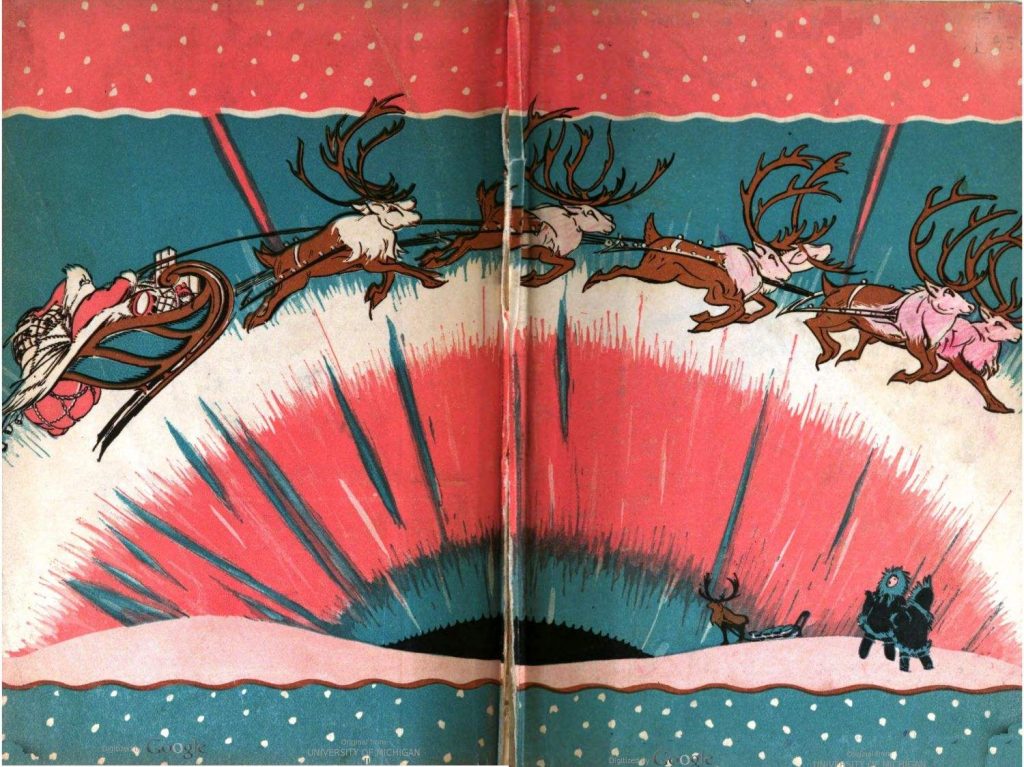
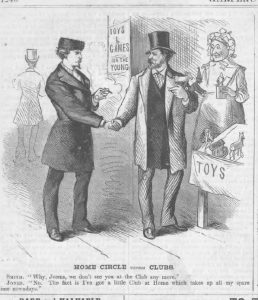
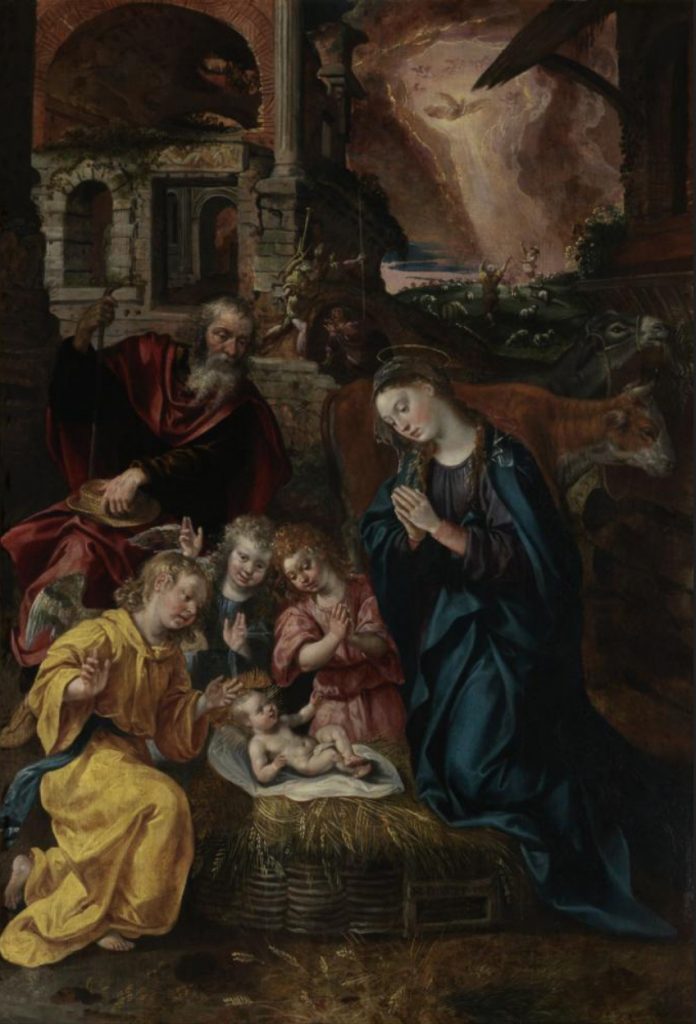
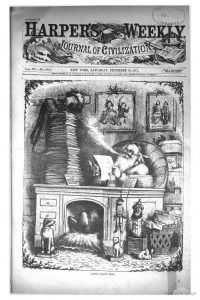
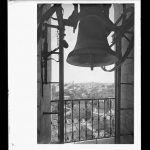

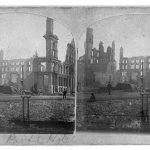
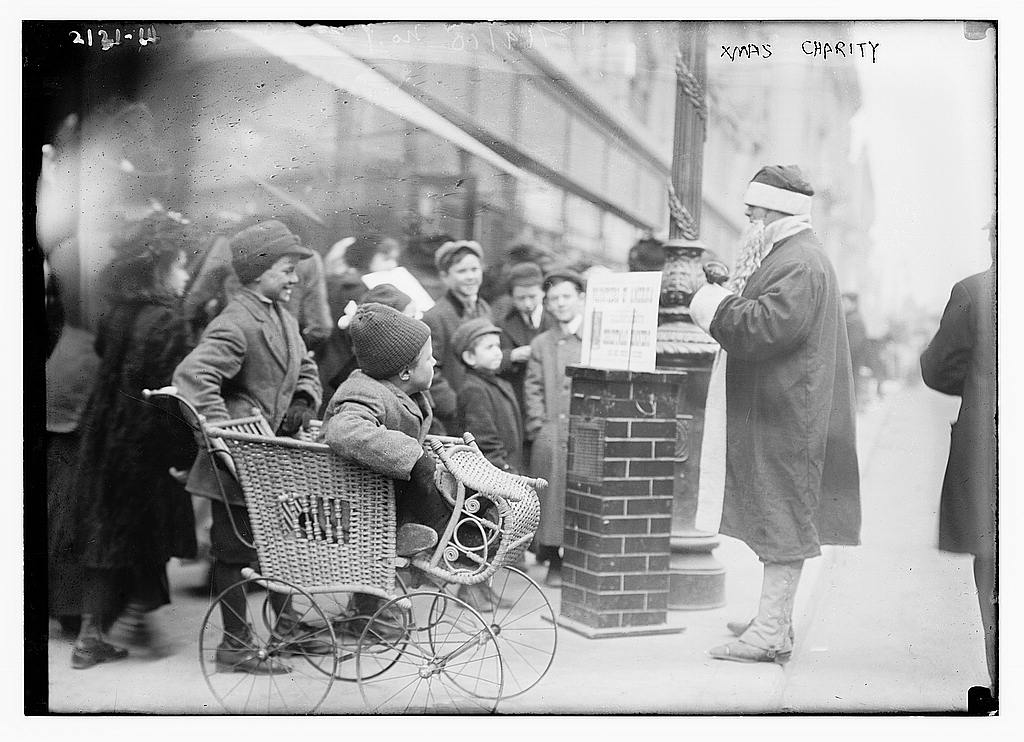
![Merry Christmas (New York : Published by Currier & Ives, 125 Nassau St., [1876])](https://www.bluegrayreview.com/wp-content/uploads/2017/12/09454v-1024x812.jpg)